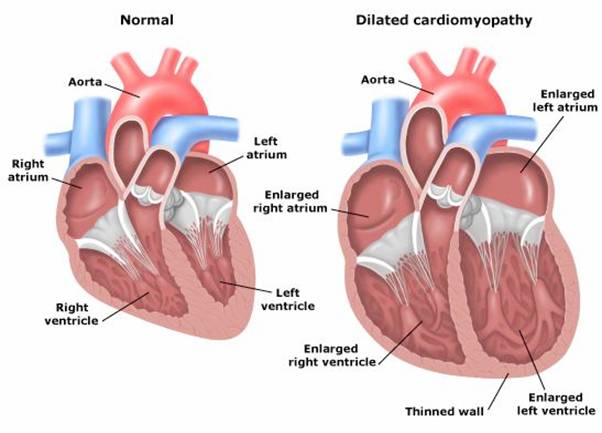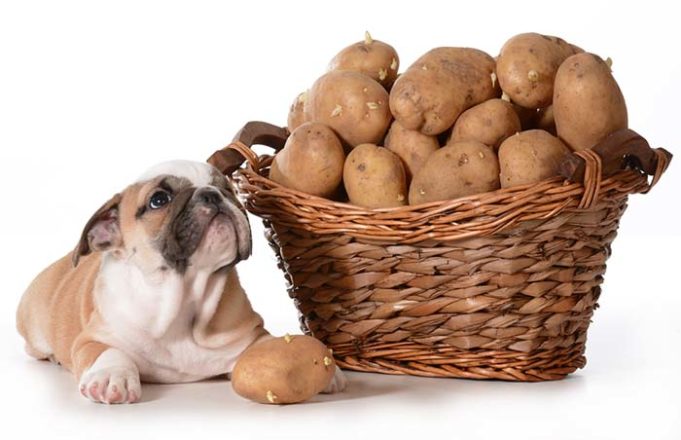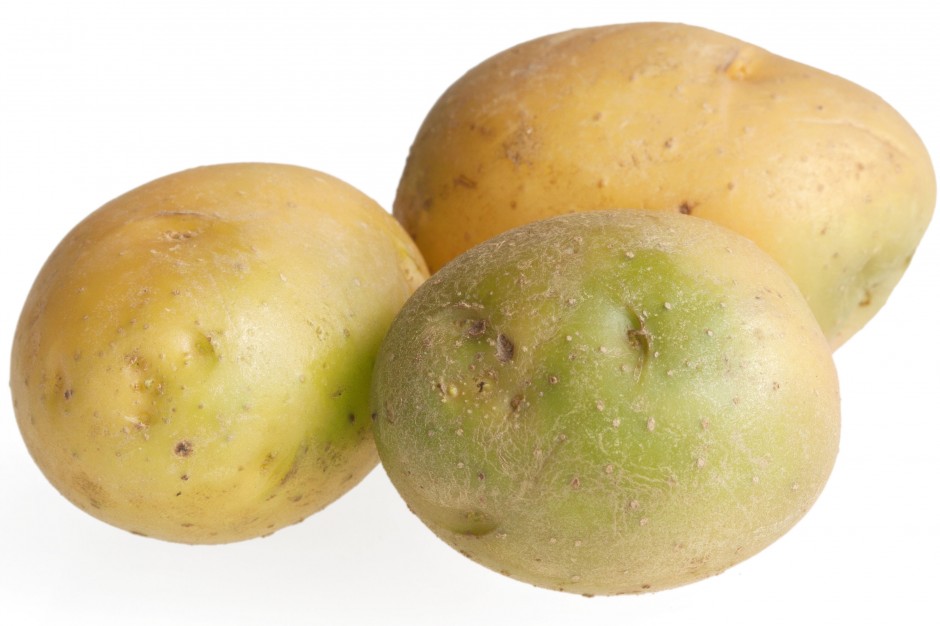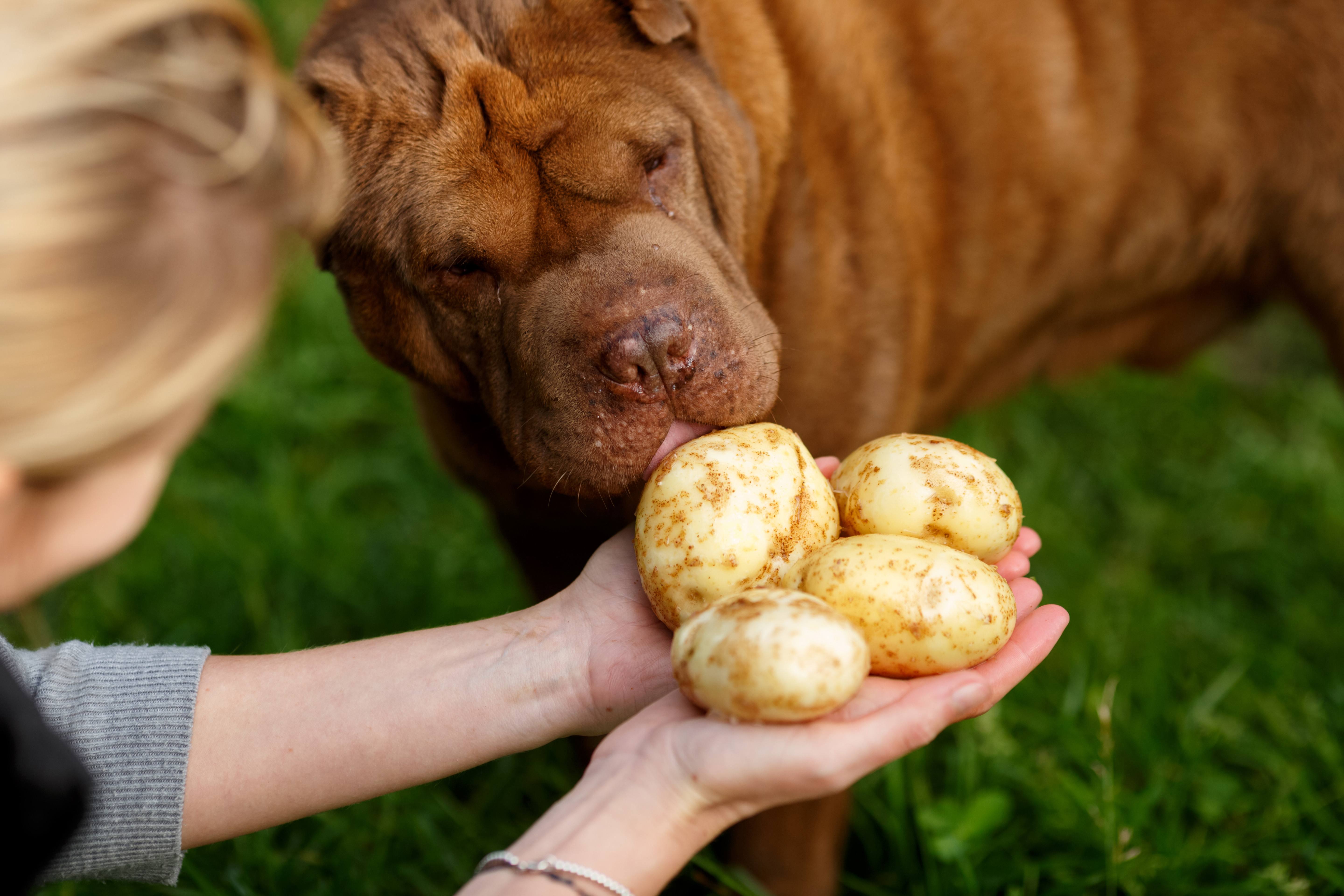Every dog owner has wondered at one point or another – while enjoying their delicious French fries, tater tots, hash browns, etc.
“S_hould I give into the puppy eyes and feed them a few?_”
While you may not be able to resist those majestic eyes, it’s important to first confirm the facts. So, can dogs eat potatoes?
The answer to this is: it depends.
FDA warns of canine heart disease

Potatoes do contain vitamin B6, Vitamin C, Magnesium, Iron and other important nutrients that a dog requires, but, if you do not prepare the potatoes properly, or, if you feed your precious puppy too many potatoes, it can lead to adverse health effects.
Now, the U.S. Food and Drug Administration recently released a report on a disease known as canine dilated cardiomyopathy (DCM), which is a disease that affects the heart muscles and leads to a reduction in the heart pumping function or an increase in the heart size.
This can result in severe consequences and even lead to heart failure.
Research shows that DCM is a genetic condition, but it can also be caused by other factors such as feeding dogs foods that contain peas, legumes or potato as the main ingredient.
Are potatoes toxic to dogs?

This really depends on how you feed the potato to your dog.
If you feed your dog raw potatoes, they are toxic. On the other hand, baked or boiled potatoes that have nothing added to them are okay. The reason for this is that; Raw potatoes belong to the nightshade family of vegetables, which includes tomatoes as well.
These types of vegetables normally contain solanine which is a toxic substance. When you cook the potato, you reduce the level of solanine and the potato ceases to be toxic.
Your dog is essentially supposed to receive most of their nutrients from animal products, so, if you are going to include potatoes in their diet, ensure to do it in small quantities, and remember that too many carbohydrates can lead to obesity.
What is green potato poisoning?

Now, while feeding your dog cooked potato is safe, you should always check the potato you are about to prepare. First of all, NEVER feed your dog the potato skin as this is very toxic for him. Secondly, always check the potato before you prepare it.
If you find that the skin of the potato is green, that potato is not good for your dog.
The green color on the potato means it has high levels of solanine. This will cause poisoning to your dog, and irritate his esophagus and stomach lining.
Cooking a green potato does not destroy the solanine; and so you must always avoid the green-skinned potatoes. The raw potato skin contains a chemical known as chaconine and this can cause irritation to their nervous system and leads to tremors and kidney failure.
If you suspect that your dog has consumed too much solanine, you should call your veterinarian immediately.
Symptoms of solanine poisoning in dogs

The symptoms will vary depending on how much chaconine or solanine your dog has consumed, and also the health status and size of your dog.
In most cases, it will be mild unless you have a very small dog.
The most common symptoms are:
- burning of the throat.
- fever
- cardiac dysrhythmia
- difficulty breathing
- gastrointestinal symptoms
- abdominal pain such as diarrhea and nausea
- excess drooling
- delirium
- dizziness
- dilated pupils
- heart problems
- headache
- loss of sensation
- jaundice
- numbness and burning sensation of the tongue
- low body temperature (hypothermia)
- mouth, and lips paralysis
- slow pulse
- shock
- seizures
- swelling of tongue or lips
- slowed breathing
- vision changes
- vomiting
- trembling
- weakness
- in some cases, death.
What causes green potato poisoning in dogs?
The symptoms of solanine poisoning occur as a result of the interruption of a chemical known as acetylcholine, whose main function is to transmit nerve impulses.
This chemical – solanine, is also known to cause irritation of the intestinal tract and it is found in:
- green potatoes
- potato foliage
- raw potato skins
- sprouts that are grown on potatoes.
Diagnosis of solanine in dogs
When you take the dog to the vet as a result of potato poisoning, he will want to know what he consumed exactly, and how much of it he consumed. You should also let him know your dog’s medical history and this will include any illnesses and injuries he may have suffered.
The vet will then conduct a comprehensive medical examination which includes taking his temperature, height, weight, reflexes, pulses, breathing rate and blood pressure.
He/she will also conduct some tests, like:
- a complete blood count
- blood gas
- chemical panel
- urinalysis
- glucose level
- liver and kidney functions
- chest x-rays
- and ECG – Electrocardiogram to monitor the dog’s heart rate.
If the chest x-ray will shows abnormalities, they will be required to do an ultrasound, CT scan and MRI, in order to better understand what is happening to your dog.
Treatment of solanine poisoning
The first course of treatment will involve giving apomorphine in order to induce vomiting, and also activated charcoal to absorb the toxins that may be in the stomach.
The vet will then sedate your dog and provide him with some IV fluids with oxygen therapy.
If they suspect there are still some toxins in your dog’s tummy, they will be required to perform a gastric lavage which is the procedure of inserting a tube down your dog’s mouth in order to be able to flush out the stomach with a saline solution.
They will then give medication such as, Pilocarpine and Physostigmine, which may help in boosting your dog’s nervous system.
Recovery from Solanine poisoning
In order to help your dog recover, you will need to provide a quiet resting place. Give him plenty of comfort and ensure he takes his medication as prescribed.
Final say on dogs eating potatoes

In order to prevent this from happening, ensure to keep all potatoes and potato skins far from your dog’s reach!
Although potatoes are not toxic when cooked, it is better not to give any of it to your dog, as there are other better sources of nutrients that your dog can have. Instead of cooked potatoes, you could give baby carrots, pumpkin, fresh green beans or small apple slices.
These alternatives are actually healthier compared to any form of potato.

